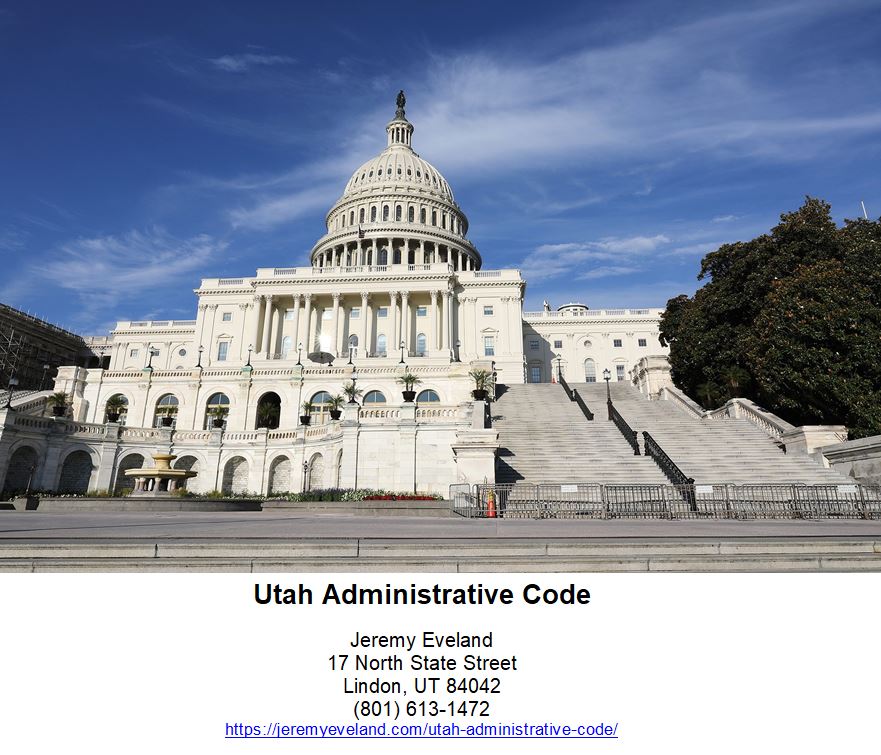-
Attorney & Counselor at Law
- Introduction
- The Benefits of Working with an Experienced Estate Planning Lawyer in Ogden
- What You Need to Know About Estate Planning Law in Ogden, Utah
- How to Protect Your Assets with an Estate Planning Lawyer in Ogden
- The Benefits of Creating a Living Trust with an Estate Planning Lawyer in Ogden
- What to Expect During an Estate Planning Consultation with an Ogden Attorney
- Do You Need A Will or Trust in Your Ogden Utah Estate Plan?
- Do You Need A Power of Attorney or Medical Directive in Your Ogden Utah Estate Plan?
- How to Ensure Your Estate Plan is Up-to-Date with an Ogden Attorney
“Secure Your Future with Estate Planning Lawyer Ogden Utah”
Introduction
Estate Planning Lawyer Ogden Utah is a law firm dedicated to providing comprehensive estate planning services to individuals and families in the Ogden area. Our experienced attorneys have a deep understanding of the complexities of estate planning and are committed to helping our clients create a plan that meets their individual needs. We understand that estate planning is a complex process and we strive to make it as easy and stress-free as possible. Our attorneys are knowledgeable in all aspects of estate planning, including wills, trusts, probate, guardianship, and more. We are committed to providing our clients with the highest quality of legal services and advice. We are committed to helping our clients protect their assets and ensure their wishes are carried out.
The Benefits of Working with an Experienced Estate Planning Lawyer in Ogden
When it comes to estate planning, it is important to work with an experienced lawyer who can help you make the best decisions for your future. An experienced estate planning lawyer in Ogden can provide you with the guidance and advice you need to ensure that your wishes are carried out and that your assets are protected. Here are some of the benefits of working with an experienced estate planning lawyer in Ogden.
1. Knowledge of the Law: An experienced estate planning lawyer in Ogden will have a thorough understanding of the laws and regulations that govern estate planning in the state of Utah. This knowledge will help ensure that your estate plan is legally sound and that it meets all of the requirements of the state.
2. Experience: An experienced estate planning lawyer in Ogden will have a wealth of experience in helping clients create and implement estate plans. This experience will help ensure that your estate plan is tailored to your specific needs and that it is designed to meet your goals.
3. Guidance: An experienced estate planning lawyer in Ogden can provide you with the guidance and advice you need to make the best decisions for your future. They can help you understand the various options available to you and can provide you with the information you need to make informed decisions.
4. Protection: An experienced estate planning lawyer in Ogden can help protect your assets and ensure that your wishes are carried out. They can help you create a plan that will protect your assets from creditors and ensure that your wishes are carried out after you pass away.
When it comes to estate planning, it is important to work with an experienced lawyer who can help you make the best decisions for your future. An experienced estate planning lawyer in Ogden can provide you with the guidance and advice you need to ensure that your wishes are carried out and that your assets are protected. With their knowledge of the law, experience, guidance, and protection, an experienced estate planning lawyer in Ogden can help you create a plan that will meet your goals and protect your assets.
What You Need to Know About Estate Planning Law in Ogden, Utah
Estate planning law in Ogden, Utah is an important part of ensuring that your assets are distributed according to your wishes after you pass away. It is important to understand the laws in Ogden, Utah in order to ensure that your estate is handled properly and that your wishes are respected.
The first step in estate planning is to create a will. A will is a legal document that outlines how you would like your assets to be distributed after you pass away. It is important to make sure that your will is properly drafted and that it is legally valid. In Ogden, Utah, wills must be signed by two witnesses and notarized in order to be valid.
Another important part of estate planning is creating a trust. A trust is a legal entity that holds assets for the benefit of another person or entity. Trusts can be used to protect assets from creditors, to provide for minor children, or to provide for a disabled family member. In Ogden, Utah, trusts must be created in accordance with state law in order to be valid.
In addition to wills and trusts, estate planning in Ogden, Utah also includes other important documents such as powers of attorney, health care directives, and living wills. Powers of attorney allow you to designate someone to make decisions on your behalf if you become incapacitated. Health care directives allow you to specify your wishes regarding medical care if you become unable to make decisions for yourself. Living wills allow you to specify your wishes regarding end-of-life care.
Estate planning in Ogden, Utah is an important part of ensuring that your wishes are respected after you pass away. It is important to understand the laws in Ogden, Utah in order to ensure that your estate is handled properly and that your wishes are respected. Working with an experienced estate planning attorney can help you create a comprehensive estate plan that meets your needs and protects your assets.
How to Protect Your Assets with an Estate Planning Lawyer in Ogden
Estate planning is an important part of protecting your assets and ensuring that your wishes are carried out after you pass away. An estate planning lawyer in Ogden can help you create a comprehensive plan that will protect your assets and ensure that your wishes are followed. Here are some tips for working with an estate planning lawyer in Ogden to protect your assets.
1. Understand Your Assets: Before you meet with an estate planning lawyer, it is important to understand the assets you have and how they are owned. This includes any real estate, investments, bank accounts, and other assets. Knowing the details of your assets will help your lawyer create a plan that is tailored to your needs.
2. Create a Will: A will is an important part of any estate plan. It allows you to specify how you want your assets to be distributed after you pass away. Your estate planning lawyer can help you create a will that is legally binding and ensures that your wishes are followed.
3. Consider Other Documents: In addition to a will, there are other documents that can be used to protect your assets. These include trusts, powers of attorney, and health care directives. Your estate planning lawyer can help you understand the benefits of each document and create a plan that meets your needs.
4. Update Your Plan: As your life changes, it is important to update your estate plan. Your estate planning lawyer can help you review your plan and make any necessary changes. This will ensure that your plan is up-to-date and reflects your current wishes.
Working with an estate planning lawyer in Ogden can help you protect your assets and ensure that your wishes are followed after you pass away. By understanding your assets, creating a will, considering other documents, and updating your plan, you can ensure that your assets are protected.
The Benefits of Creating a Living Trust with an Estate Planning Lawyer in Ogden
Creating a living trust is an important part of estate planning. A living trust is a legal document that allows you to transfer your assets to a trustee who will manage them for the benefit of your beneficiaries. An estate planning lawyer in Ogden can help you create a living trust that meets your needs and protects your assets.
There are many benefits to creating a living trust with an estate planning lawyer in Ogden. One of the most important benefits is that it allows you to avoid probate. Probate is the legal process of distributing a deceased person’s assets. It can be a lengthy and expensive process, and it can be avoided by creating a living trust.
Another benefit of creating a living trust is that it allows you to maintain control over your assets. You can specify how your assets are to be distributed and who will receive them. You can also specify how your assets are to be managed and invested. This allows you to ensure that your assets are managed in accordance with your wishes.
Creating a living trust also allows you to protect your assets from creditors. If you have creditors, they cannot access your assets if they are held in a living trust. This can provide peace of mind and help you protect your assets from creditors.
Finally, creating a living trust can help you reduce taxes. Assets held in a living trust are not subject to estate taxes, which can be a significant savings.
Creating a living trust with an estate planning lawyer in Ogden can provide many benefits. It can help you avoid probate, maintain control over your assets, protect your assets from creditors, and reduce taxes. An estate planning lawyer can help you create a living trust that meets your needs and protects your assets.
What to Expect During an Estate Planning Consultation with an Ogden Attorney
An estate planning consultation with an Ogden attorney is an important step in ensuring that your wishes are carried out after you pass away. During the consultation, your attorney will help you create a comprehensive estate plan that meets your needs and goals.
At the beginning of the consultation, your attorney will ask you questions about your assets, debts, and family situation. This will help them understand your financial situation and determine the best way to structure your estate plan. Your attorney will also discuss your goals for the estate plan, such as providing for your family, minimizing taxes, and protecting your assets.
Your attorney will then explain the various estate planning tools available to you, such as wills, trusts, and powers of attorney. They will explain the advantages and disadvantages of each tool and help you decide which ones are best for your situation.
Your attorney will also discuss the importance of naming beneficiaries and guardians for minor children. They will explain the legal requirements for these designations and help you make sure that your wishes are properly documented.
Finally, your attorney will review any existing estate planning documents you may have and make sure that they are up to date. They will also discuss any changes that may need to be made to ensure that your estate plan is effective.
At the end of the consultation, your attorney will provide you with a summary of the estate planning tools you have chosen and any changes that need to be made. They will also provide you with a timeline for completing the estate planning process.
An estate planning consultation with an Ogden attorney is an important step in ensuring that your wishes are carried out after you pass away. Your attorney will help you create a comprehensive estate plan that meets your needs and goals. They will explain the various estate planning tools available to you, discuss the importance of naming beneficiaries and guardians, and review any existing estate planning documents you may have. At the end of the consultation, your attorney will provide you with a summary of the estate planning tools you have chosen and any changes that need to be made.
Do You Need A Will or Trust in Your Ogden Utah Estate Plan?
Creating an estate plan is an important step in ensuring that your wishes are carried out after you pass away. In Ogden, Utah, a will or trust can be an important part of your estate plan.
A will is a legal document that outlines how you want your assets to be distributed after you pass away. It can also name a guardian for any minor children you may have. A will is an important part of your estate plan because it ensures that your wishes are carried out.
A trust is a legal document that allows you to transfer assets to a trustee who will manage them for the benefit of your beneficiaries. A trust can be used to manage assets during your lifetime, or it can be used to manage assets after you pass away. A trust can be used to provide for minor children, protect assets from creditors, or minimize taxes.
Whether you need a will or trust in your Ogden, Utah estate plan depends on your individual circumstances. If you have minor children, a will is essential to ensure that they are taken care of after you pass away. If you have significant assets, a trust can help you manage them and protect them from creditors.
If you are unsure whether you need a will or trust in your Ogden, Utah estate plan, it is important to speak with an experienced estate planning attorney. An attorney can help you understand your options and create an estate plan that meets your needs.
Do You Need A Power of Attorney or Medical Directive in Your Ogden Utah Estate Plan?
Having a Power of Attorney (POA) and Medical Directive (MD) in your Ogden, Utah estate plan is an important step in protecting your assets and ensuring that your wishes are carried out in the event of an emergency. A POA is a legal document that allows you to appoint someone to act on your behalf in the event that you are unable to do so. This could include making financial decisions, signing documents, or managing your property. A MD is a document that allows you to specify your wishes regarding medical care in the event that you are unable to make decisions for yourself.
Having a POA and MD in your Ogden, Utah estate plan is essential for protecting your assets and ensuring that your wishes are carried out in the event of an emergency. A POA allows you to appoint someone to act on your behalf in the event that you are unable to do so. This could include making financial decisions, signing documents, or managing your property. A MD allows you to specify your wishes regarding medical care in the event that you are unable to make decisions for yourself.
Having a POA and MD in your Ogden, Utah estate plan is an important step in protecting your assets and ensuring that your wishes are carried out in the event of an emergency. It is important to consult with an experienced estate planning attorney to ensure that your POA and MD are properly drafted and executed. An attorney can also help you understand the legal implications of having a POA and MD in your estate plan.
How to Ensure Your Estate Plan is Up-to-Date with an Ogden Attorney
Having an up-to-date estate plan is essential for protecting your assets and ensuring that your wishes are carried out after you pass away. An Ogden attorney can help you create and maintain an estate plan that meets your needs and is in compliance with the law. Here are some tips for ensuring your estate plan is up-to-date:
1. Review your plan regularly. It is important to review your estate plan at least once a year to make sure it is still in line with your wishes and that it reflects any changes in your life. This includes changes in your family, financial situation, or health.
2. Update your beneficiaries. Make sure that your beneficiaries are up-to-date and that they are still the people you want to receive your assets.
3. Consider tax implications. Tax laws change frequently, so it is important to review your estate plan to make sure it is still in compliance with the law.
4. Consult an attorney. An experienced Ogden attorney can help you review your estate plan and make sure it is up-to-date. They can also help you make any necessary changes to ensure your wishes are carried out.
Having an up-to-date estate plan is essential for protecting your assets and ensuring that your wishes are carried out after you pass away. An Ogden attorney can help you create and maintain an estate plan that meets your needs and is in compliance with the law. By following these tips, you can ensure that your estate plan is up-to-date and that your wishes are carried out.
Areas We Serve
We serve individuals and businesses in the following locations:
Salt Lake City Utah
West Valley City Utah
Provo Utah
West Jordan Utah
Orem Utah
Sandy Utah
Ogden Utah
St. George Utah
Layton Utah
South Jordan Utah
Lehi Utah
Millcreek Utah
Taylorsville Utah
Logan Utah
Murray Utah
Draper Utah
Bountiful Utah
Riverton Utah
Herriman Utah
Spanish Fork Utah
Roy Utah
Pleasant Grove Utah
Kearns Utah
Tooele Utah
Cottonwood Heights Utah
Midvale Utah
Springville Utah
Eagle Mountain Utah
Cedar City Utah
Kaysville Utah
Clearfield Utah
Holladay Utah
American Fork Utah
Syracuse Utah
Saratoga Springs Utah
Magna Utah
Washington Utah
South Salt Lake Utah
Farmington Utah
Clinton Utah
North Salt Lake Utah
Payson Utah
North Ogden Utah
Brigham City Utah
Highland Utah
Centerville Utah
Hurricane Utah
South Ogden Utah
Heber Utah
West Haven Utah
Bluffdale Utah
Santaquin Utah
Smithfield Utah
Woods Cross Utah
Grantsville Utah
Lindon Utah
North Logan Utah
West Point Utah
Vernal Utah
Alpine Utah
Cedar Hills Utah
Pleasant View Utah
Mapleton Utah
Stansbury Par Utah
Washington Terrace Utah
Riverdale Utah
Hooper Utah
Tremonton Utah
Ivins Utah
Park City Utah
Price Utah
Hyrum Utah
Summit Park Utah
Salem Utah
Richfield Utah
Santa Clara Utah
Providence Utah
South Weber Utah
Vineyard Utah
Ephraim Utah
Roosevelt Utah
Farr West Utah
Plain City Utah
Nibley Utah
Enoch Utah
Harrisville Utah
Snyderville Utah
Fruit Heights Utah
Nephi Utah
White City Utah
West Bountiful Utah
Sunset Utah
Moab Utah
Midway Utah
Perry Utah
Kanab Utah
Hyde Park Utah
Silver Summit Utah
La Verkin Utah
Morgan Utah
Estate Planning Lawyer Ogden Utah Consultation
When you need help from a Estate Planning Lawyer Ogden Utah call Jeremy D. Eveland, MBA, JD (801) 613-1472 for a consultation.
Jeremy Eveland
17 North State Street
Lindon UT 84042
(801) 613-1472
Related Posts
Using Disclaimers In Estate Planning
Business Succession Lawyer Spanish Fork Utah
Corporate Attorney St. George Utah
Business Strategy and Consulting
Business Succession Lawyer Roy Utah
Business Lawyer St George Utah
Estate Planning Lawyer Ogden Utah
[geocentric_weather id=”a162784e-cf7b-40cd-b0bb-9f2d19ecd77d”]
[geocentric_about id=”a162784e-cf7b-40cd-b0bb-9f2d19ecd77d”]
[geocentric_neighborhoods id=”a162784e-cf7b-40cd-b0bb-9f2d19ecd77d”]
[geocentric_thingstodo id=”a162784e-cf7b-40cd-b0bb-9f2d19ecd77d”]
[geocentric_busstops id=”a162784e-cf7b-40cd-b0bb-9f2d19ecd77d”]
[geocentric_mapembed id=”a162784e-cf7b-40cd-b0bb-9f2d19ecd77d”]
[geocentric_drivingdirections id=”a162784e-cf7b-40cd-b0bb-9f2d19ecd77d”]
[geocentric_reviews id=”a162784e-cf7b-40cd-b0bb-9f2d19ecd77d”]


















